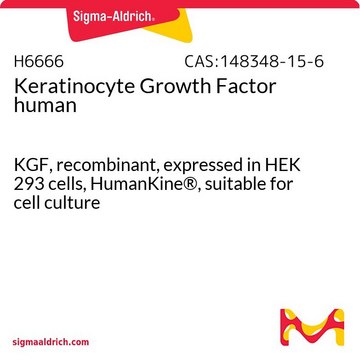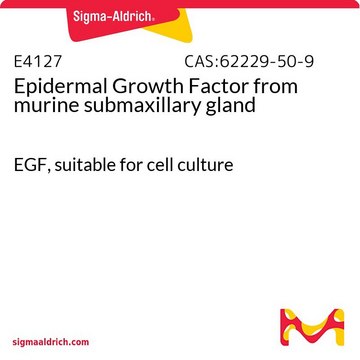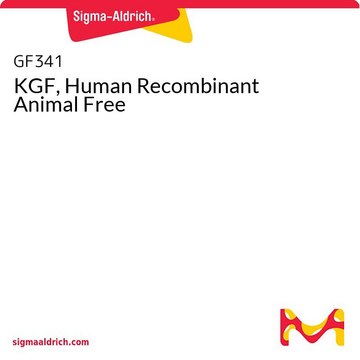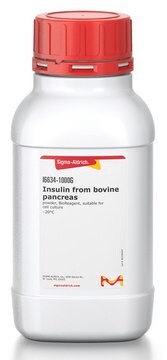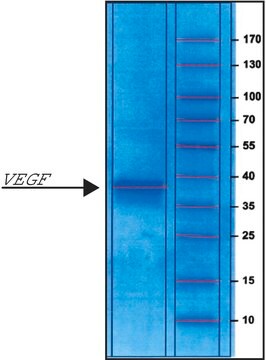K1757
Keratinocyte Growth Factor human
≥95% (SDS-PAGE and HPLC), recombinant, expressed in E. coli, powder, suitable for cell culture
Synonym(s):
hFGF-7, hKGF, FGF-7, KGF
About This Item
Recommended Products
product name
Keratinocyte Growth Factor human, KGF, recombinant, expressed in E. coli, powder, suitable for cell culture
biological source
human
Quality Level
recombinant
expressed in E. coli
Assay
≥95% (SDS-PAGE and HPLC)
form
powder
potency
0.1-15 ng/mL ED50/EC50
quality
endotoxin tested
mol wt
18.9 kDa
packaging
pkg of 10 and 50 μg
technique(s)
cell culture | mammalian: suitable
impurities
1 EU/μg
UniProt accession no.
storage temp.
−20°C
Gene Information
human ... FGF7(2252)
Looking for similar products? Visit Product Comparison Guide
General description
Application
- as a component of epithelial growth medium
- as a positive control for antigen to determine the activity of the antibody
- to analyze the influence of KGF associated with thermo-sterilized carboxymethyl chitosan (NOCCts) in the reduction of pericardial adhesions
Biochem/physiol Actions
Physical form
Analysis Note
Storage Class Code
11 - Combustible Solids
WGK
WGK 3
Flash Point(F)
Not applicable
Flash Point(C)
Not applicable
Personal Protective Equipment
Regulatory Listings
Regulatory Listings are mainly provided for chemical products. Only limited information can be provided here for non-chemical products. No entry means none of the components are listed. It is the user’s obligation to ensure the safe and legal use of the product.
JAN Code
K1757-50UG:
2011015:
K1757-BULK:
K1757-10UG:
K1757-10UG-PW:
K1757-VAR:
K1757-50UG-PW:
Certificates of Analysis (COA)
Search for Certificates of Analysis (COA) by entering the products Lot/Batch Number. Lot and Batch Numbers can be found on a product’s label following the words ‘Lot’ or ‘Batch’.
Already Own This Product?
Find documentation for the products that you have recently purchased in the Document Library.
Customers Also Viewed
Our team of scientists has experience in all areas of research including Life Science, Material Science, Chemical Synthesis, Chromatography, Analytical and many others.
Contact Technical Service